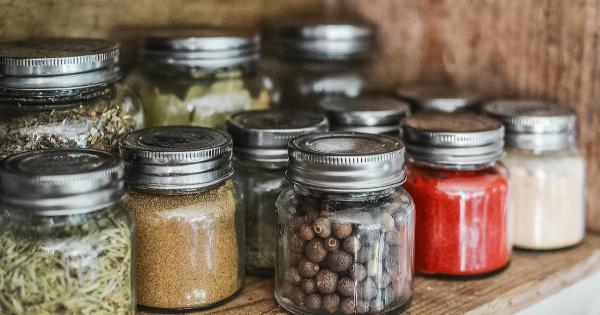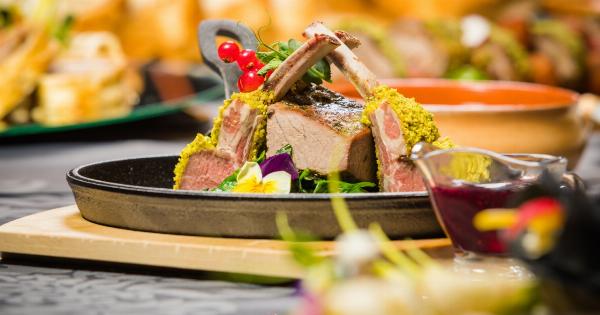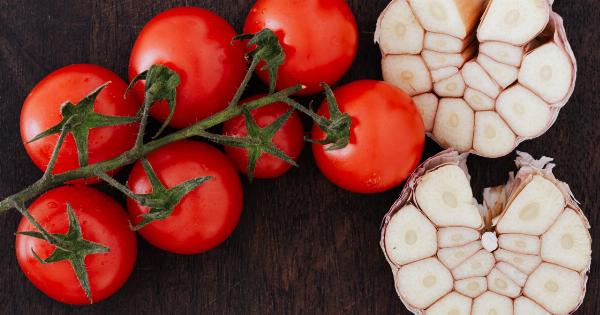Arthritis is a painful condition that affects millions of people worldwide. It can cause stiffness, swelling, and pain in the joints, making it difficult to move and perform daily tasks.
Knee arthritis, in particular, can be especially challenging as it affects our ability to walk, run, and even stand for long periods of time. Fortunately, there are natural remedies that can help alleviate the pain and discomfort of knee arthritis, and some of them can be found in your kitchen – in the form of spices!.
Ginger
Ginger is a well-known anti-inflammatory spice that has been used for centuries to treat various ailments, including arthritis. It contains compounds called gingerols and shogaols, which have been shown to reduce inflammation and pain in the joints.
Ginger can be consumed in many forms, such as in tea, capsules, or added to food. One study found that taking a ginger supplement for six weeks helped reduce knee pain in patients with osteoarthritis, a common form of arthritis that affects the knee.
If you decide to take a ginger supplement, make sure to talk to your healthcare provider first.
Turmeric
Turmeric is another anti-inflammatory spice that contains a compound called curcumin, which has been shown to reduce pain and inflammation in the joints.
A study published in the Journal of Medicinal Food found that turmeric extract was as effective as ibuprofen in reducing knee pain in patients with osteoarthritis. Turmeric can be consumed as a spice, in supplement form, or added to food. To increase its absorption, it’s recommended to consume turmeric with black pepper.
Cinnamon
Cinnamon is a popular spice that can be added to many dishes. It contains compounds called cinnamaldehyde and cinnamic acid, which have been shown to have anti-inflammatory and antioxidant properties.
While there haven’t been many studies investigating the effects of cinnamon on knee arthritis, its anti-inflammatory properties may help reduce pain and swelling in the joints. Cinnamon can be consumed as a spice or added to food and beverages, such as oatmeal or tea.
Cayenne Pepper
Cayenne pepper contains a compound called capsaicin, which has been shown to reduce pain and inflammation in the body. Capsaicin works by depleting a neurotransmitter called Substance P, which transmits pain signals to the brain.
In one study, patients with knee arthritis who applied a topical cream containing capsaicin reported significant pain reduction compared to a placebo cream. Cayenne pepper can be added to food or taken in supplement form.
Garlic
Garlic is a well-known immune-boosting food that also has anti-inflammatory properties. It contains a compound called allicin, which has been shown to reduce inflammation in the body.
While there haven’t been many studies investigating the effects of garlic on knee arthritis specifically, its anti-inflammatory properties may help alleviate pain and swelling in the joints. Garlic can be consumed raw or cooked and added to numerous dishes.
Cloves
Cloves are a spice commonly used in baking and cooking. They contain a compound called eugenol, which has been shown to have anti-inflammatory and analgesic (pain-relieving) properties.
In one study, patients with knee osteoarthritis who received a topical cream containing eugenol reported significant pain relief. Cloves can be consumed as a spice or added to food and beverages, such as tea.
Cumin
Cumin is a spice commonly used in Middle Eastern and Indian cuisine. It contains a compound called thymoquinone, which has been shown to have anti-inflammatory and antioxidant properties.
While there haven’t been many studies investigating the effects of cumin on knee arthritis specifically, its anti-inflammatory properties may help reduce pain and swelling in the joints. Cumin can be consumed as a spice or added to food and beverages, such as hummus or soup.
Fenugreek
Fenugreek is an herb commonly used in Indian and Middle Eastern cuisine. It contains a compound called diosgenin, which has been shown to have anti-inflammatory and antioxidant properties.
In one study, patients with knee osteoarthritis who received a topical cream containing fenugreek reported significant pain reduction. Fenugreek can be consumed as a spice, in supplement form, or added to food and beverages, such as curry or tea.
Black Pepper
Black pepper is a common spice used in many dishes. It contains a compound called piperine, which has been shown to increase the absorption of curcumin, the active compound in turmeric.
By consuming black pepper along with turmeric, you may increase the anti-inflammatory effects of curcumin and potentially reduce knee pain and swelling. Black pepper can be added to food or taken in supplement form.
Coriander
Coriander is a spice commonly used in Asian, Middle Eastern, and Mediterranean cuisines. It contains a compound called linalool, which has been shown to have anti-inflammatory properties.
While there haven’t been many studies investigating the effects of coriander on knee arthritis specifically, its anti-inflammatory properties may help alleviate pain and swelling in the joints. Coriander can be consumed as a spice or added to food and beverages, such as salsa or smoothies.
Conclusion
If you suffer from knee arthritis, incorporating these spices into your diet may help alleviate pain and reduce inflammation in the joints.
While these natural remedies can be effective, it’s important to talk to your healthcare provider before making any changes to your medication or supplement regimen. In addition to incorporating these spices into your diet, maintaining a healthy weight, engaging in regular exercise, and getting adequate rest may also help alleviate knee arthritis pain.




























